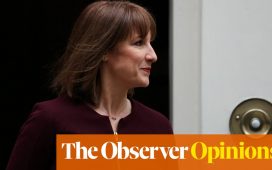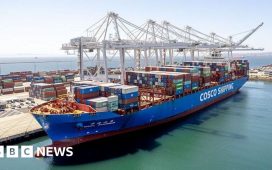
India’s foreign minister said his country was awaiting a “thank you” for buying sanctioned Russian oil, saying the move had eased pressure on prices elsewhere.
Subrahmanyam Jaishankar said India should be credited with “softening the oil markets” by avoiding competition with Western nations in the scramble for alternative supplies.
He made the comments in an interview with veteran journalist Lionel Barber during the last leg of his five-day visit to the UK.
India made Moscow its top supplier of oil since Vladimir Putin’s February 2022 invasion of Ukraine, as traditional customers in Europe imposed sanctions on Russian exports.
“We’ve actually softened the oil markets and the gas markets through our purchase policies,” Mr Jaishankar said.
“We have, as a consequence actually managed global inflation. So people should be saying thank you.”
“You’d be doing a service,” asked Barber?
“Yes absolutely, I’m waiting for the thank you,” replied Mr Jaishankar. “When it comes to the purchase… I think the global oil prices would have gone higher because we would have gone into the same market to the same suppliers that Europe would have done, and as we discovered, Europe would have outpriced us.”
He praised India’s strong relations with Russia and pointed to over 70 years of stable ties with the country.
The top Indian diplomat began his UK visit on Sunday. He then met Rishi Sunak and new foreign secretary David Cameron as the British cabinet underwent a dramatic reshuffle following the sacking of Suella Braverman.
Mr Jaishankar described his visit as “timely” following a series of cross-party meetings and said there was “substantial progress” on continuing free trade agreement negotiations with the UK.
India began facing questions over its dealings with Russia after the latter’s war in Ukraine.
New Delhi pivoted from its traditional suppliers Saudi Arabia and Iraq and picked up discounted barrels from Russia.
Russia, which has also been the biggest supplier of military equipment to India for decades, has not been directly condemned by Indian prime minister Narendra Modi.
Mr Modi has called for peace and dialogue amid the war, and his strongest statement to date for Mr Putin had come last year.
Mr Jaishankar has defended his country against criticism. He had earlier said that, as the world’s third-largest consumer of oil and gas, India had to look after its own national interests and will continue buying Russian oil.
In his interview, Mr Jaishankar also discussed Canada’s allegations in September that it had “credible” evidence of the Indian state’s involvement in the murder of Canadian-Sikh separatist leader Hardeep Singh Nijjar.
India has rejected the allegations, calling them absurd.
Mr Jaishankar said India was willing to cooperate with Canada, but demanded evidence to back its claims.
“If you have a reason to make such an allegation please share the evidence because we are not ruling out an investigation,” said Mr Jaishankar, in a reiteration of India’s stand on the issue.
He said Ottawa had given space for “violent and extreme political opinions which advocate separatism from India”.
“These people have been accommodated in Canadian politics. They are given the freedom to articulate their views.”
Canadian prime minister Justin Trudeau made the comments in September and has since urged the Indian side to assist in investigations.
The allegations have sparked a diplomatic row between the countries.
Last month, Canada had recalled 41 diplomats from India after Delhi threatened to strip diplomatic immunity of its staff, a move it said was “unreasonable” and in violation of international law on diplomatic relations.










